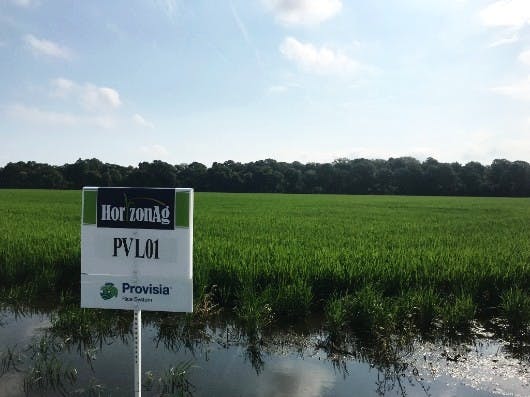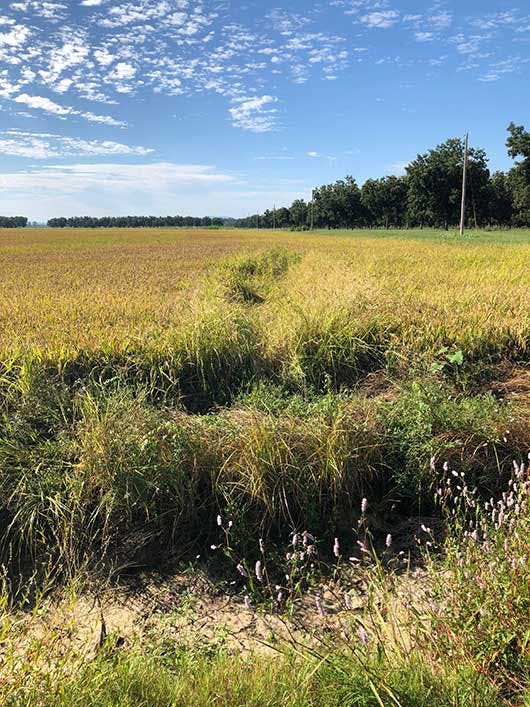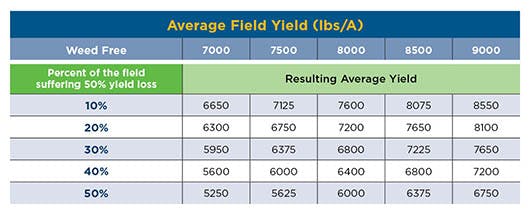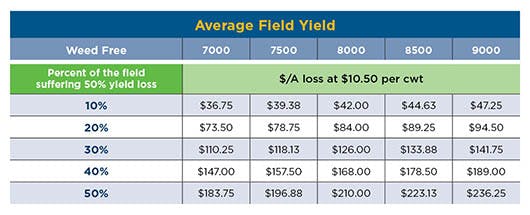
Provisia® Rice System Improves Productivity in Crisis Weedy Rice Fields
For the last few years, multiple areas throughout the South, but especially south Louisiana, south Arkansas, and northeast Arkansas have been in a crisis mode dealing with ALS-resistant weedy rice and grasses. The Provisia® Rice System was developed to address this crisis as well as to extend the life of Clearfield rice where it is still performing.
PVL01 from Horizon Ag is the first varietal release in the Provisia Rice System, and it was planted on approximately 35,000 acres in 2018 in its inaugural launch. The system, which includes PVL01, performed remarkably well.
As we’ve moved away from 2018 harvest and farmer meetings have begun, questions and statements have been brought up about the “yield drag” with PVL01. It is no secret that PVL01 does not have the same genetic yield potential as other varietal or hybrid offerings when trials are conducted in pristine fields. Most if not all of the variety trial data you are seeing presented by the universities has been collected in near-pristine conditions so that a true measure of yield potential across varieties and hybrids can be demonstrated.
Within a few years, I highly expect we will be able to market a Provisia variety that yields as good as, if not better than, the best varieties available. I say this with full confidence because we have a great breeding team working tirelessly toward that end. Also, history tells us from rice, soybean, corn and cotton that genetic yield potential quickly increases after the initial launch variety that contains a new technology.
In 2018, the Provisia Rice System proved its value in many fields where farmers with weedy rice wanted to see how the new system would perform. In Conway County, Arkansas, where farmers are experiencing increased red (weedy) rice pressure that has reduced the quality of commercial rice and resulted in up to a 90 percent yield reduction, a 30-acre Provisia rice demonstration was planted to give farmers an opportunity to see how the technology would perform, as well as to determine best management approaches and profitability potential. The field was closely monitored to assist the producers/cooperators with management practices. The Conway County plot yielded 149 bushels per acre, compared to 10 bushels per acre in a non-treated check strip. The Provisia system provided 95 percent weedy rice control, despite challenges establishing and maintaining an initial flood after the last herbicide application.

Dr. R.J. Smith, the prestigious weed scientist from the University of Arkansas, published a very thorough study that measured the competitiveness of the major weeds that infest Southern U.S. rice fields. He reported that red rice, when left to compete all season long, could reduce yield by as much as 88 percent. Table 1 shows what the resulting field average will be at yield potentials ranging from 7,000 pounds to 9,000 pounds per acre, and where the severely impacted (50 percent yield loss) portions of the field range from 10 percent to 50 percent. Table 2 converts the yield loss into dollars lost per acre based on $10.56 per cwt rice.
In a large number of the scenarios listed in Table 1, PVL01 would have similar or greater yield potential while addressing the problem that is only getting worse year after year when compared to the resulting yield of clean and infested areas of the field. Furthermore, Table 2 shows that those yield losses are substantial financial losses as well. If areas of the field are suffering as much as 88 percent yield loss as Dr. Smith reported was possible, then the case for using the Provisia Rice System is even greater.


When considering the yield loss and its financial consequences, you might want to consider addressing more of your critical-need acres. Since the ALS-resistant weedy rice and grass problem will only get worse, you might also consider starting the rotation on a percentage of your farm soon so that you can have these two excellent technologies on your farm for years to come.
For more information about the Provisia Rice System and Horizon Ag variety PVL01, contact your Horizon Ag district field representative or your local rice seed dealer.
